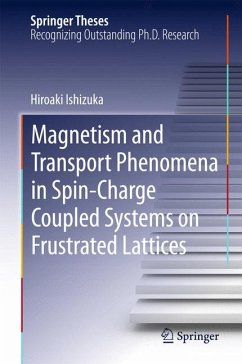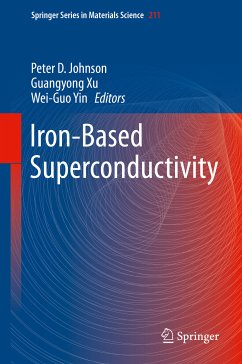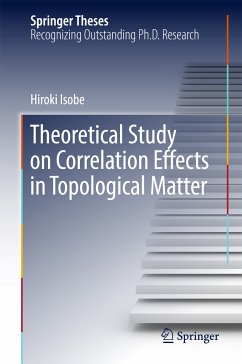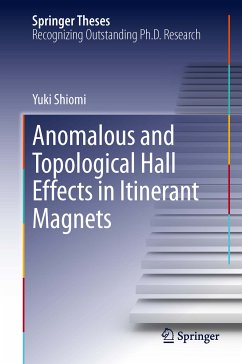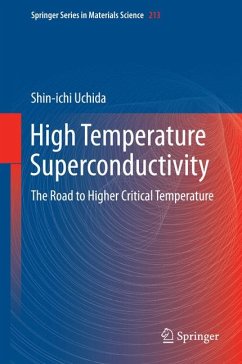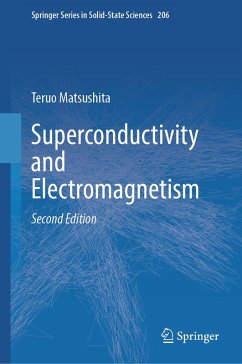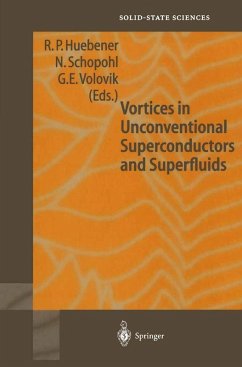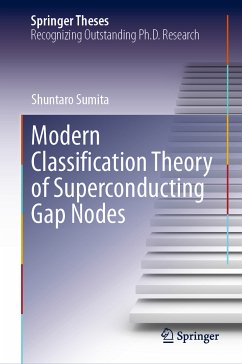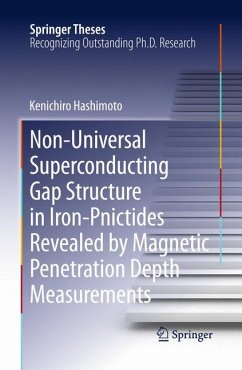
Non-Universal Superconducting Gap Structure in Iron-Pnictides Revealed by Magnetic Penetration Depth Measurements (eBook, PDF)
Versandkostenfrei!
Sofort per Download lieferbar
72,95 €
inkl. MwSt.
Weitere Ausgaben:

PAYBACK Punkte
36 °P sammeln!
In this book the author presents two important findings revealed by high-precision magnetic penetration depth measurements in iron-based superconductors which exhibit high-transition temperature superconductivity up to 55 K: one is the fact that the superconducting gap structure in iron-based superconductors depends on a detailed electronic structure of individual materials, and the other is the first strong evidence for the presence of a quantum critical point (QCP) beneath the superconducting dome of iron-based superconductors.The magnetic penetration depth is a powerful probe to elucidate t...
In this book the author presents two important findings revealed by high-precision magnetic penetration depth measurements in iron-based superconductors which exhibit high-transition temperature superconductivity up to 55 K: one is the fact that the superconducting gap structure in iron-based superconductors depends on a detailed electronic structure of individual materials, and the other is the first strong evidence for the presence of a quantum critical point (QCP) beneath the superconducting dome of iron-based superconductors.
The magnetic penetration depth is a powerful probe to elucidate the superconducting gap structure which is intimately related to the pairing mechanism of superconductivity. The author discusses the possible gap structure of individual iron-based superconductors by comparing the gap structure obtained from the penetration depth measurements with theoretical predictions, indicating that the non-universal superconducting gap structure in iron-pnictides can be interpreted in the framework of A1g symmetry. This result imposes a strong constraint on the pairing mechanism of iron-based superconductors.
The author also shows clear evidence for the quantum criticality inside the superconducting dome from the absolute zero-temperature penetration depth measurements as a function of chemical composition. A sharp peak of the penetration depth at a certain composition demonstrates pronounced quantum fluctuations associated with the QCP, which separates two distinct superconducting phases. This gives the first convincing signature of a second-order quantum phase transition deep inside the superconducting dome, whichmay address a key question on the general phase diagram of unconventional superconductivity in the vicinity of a QCP.
The magnetic penetration depth is a powerful probe to elucidate the superconducting gap structure which is intimately related to the pairing mechanism of superconductivity. The author discusses the possible gap structure of individual iron-based superconductors by comparing the gap structure obtained from the penetration depth measurements with theoretical predictions, indicating that the non-universal superconducting gap structure in iron-pnictides can be interpreted in the framework of A1g symmetry. This result imposes a strong constraint on the pairing mechanism of iron-based superconductors.
The author also shows clear evidence for the quantum criticality inside the superconducting dome from the absolute zero-temperature penetration depth measurements as a function of chemical composition. A sharp peak of the penetration depth at a certain composition demonstrates pronounced quantum fluctuations associated with the QCP, which separates two distinct superconducting phases. This gives the first convincing signature of a second-order quantum phase transition deep inside the superconducting dome, whichmay address a key question on the general phase diagram of unconventional superconductivity in the vicinity of a QCP.
Dieser Download kann aus rechtlichen Gründen nur mit Rechnungsadresse in A, B, BG, CY, CZ, D, DK, EW, E, FIN, F, GR, HR, H, IRL, I, LT, L, LR, M, NL, PL, P, R, S, SLO, SK ausgeliefert werden.




